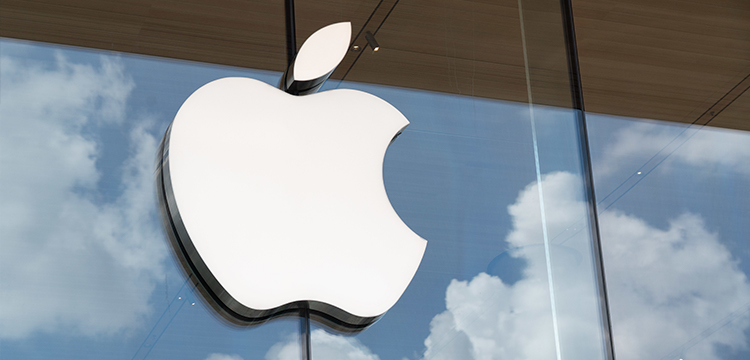The seemingly inexorable rise of Apple continues apace. This week it became the first US company to break the $2 trillion capitalisation barrier. Technically speaking it is not the first company to do so with Saudi's Aramco, who we discussed last week, briefly breaking the barrier at the start of the year though it did not stay above it for very long (now it's 'only' valued at $1.8 trillion). There is every prospect that Apple’s time above the $2 trillion mark will last for longer. Apple's success helps to explain one superficially strange thing, namely why US stock markets have just hit record levels whilst others have not recovered fully the losses made at the start of the pandemic (the FTSE 100 in London is still operating at around 20% below pandemic levels for example). One major reason for this is that the US stock market has a high relative preponderance of tech companies trading within it; although now some $300 billion behind Apple in capitalisation terms, Amazon's stock has also risen in recent times, both literally and metaphorically.
What would seemingly make this achievement even more remarkable is that these increases have come against the backdrop of the pandemic; but maybe that is not as remarkable as it first seems. As we've mentioned before, the stock of companies like Apple and Amazon (to which we could add others such as Facebook, Alphabet – Google - and Microsoft) has definitely risen during the pandemic as the products that they produce have in a way benefitted from it. These five companies together account for more than a quarter of the increase in the value of US stock markets since March. With homeworking on the rise and close physical contact between friends and family more difficult due to social distancing the technology that they collectively provide has facilitated remote working and alternative forms of communication. Of course as one commentator said this week 'Wall Street isn't a mirror of Main Street' and the US economy as a whole is under great pressure but these companies have certainly bucked a wider trend.
Yet having explained that the rise in capitalised value of such businesses is perfectly logical the fact that Apple has broken through the $2 trillion mark still came as a surprise to many. Looking back just a few months it might even have caught Apple by surprise. Back in February the company issued a revenue warning to its investors. However, by June it was becoming clear that these worries had been vastly overplayed, and not just by Apple. When results issued then showed that quarterly income had increased in all five of its product categories, Goldman Sachs, commenting on them, confessed that 'it turns out that we and consensus weren't even in the ballpark in terms of what was possible'.
It seems like only yesterday (though it was in fact in another world two years ago) that the world drew breath when Apple breached the $1 trillion capitalisation barrier. Now it has doubled that achievement. There are some mixed views as to why the company has been so successful in terms of its products. The performance of the iPhone has been in commercial terms stellar but Apple is also perceived to have done well in growing other product lines such as smartwatches and wireless headphones. But with iPhone sales ahead of schedule and still responsible for 44% of total revenue it remains hugely important to Apple's success.
Whether this is something of a bubble or not is anyone's guess. If I for one could predict the way that stock markets were going to go I probably wouldn't be writing this article. However there are some pressures for Apple to deal with. With Sino-American relationships strained and Apple to some extent caught in the middle given the significant level of business it does with China, things might yet get complicated and the market value might fall back. Apple and others are also under political scrutiny in the US for their huge commercial power and, some argue, their lack of accountability. But for the moment Apple seems to be riding the crest of a wave. Whether or not it stays there or dips into something of a relative trough it is still a considerable achievement in market terms.
Wayne Bartlett is an author for accountingcpd. To see his courses, click here.

You need to sign in or register before you can add a contribution.